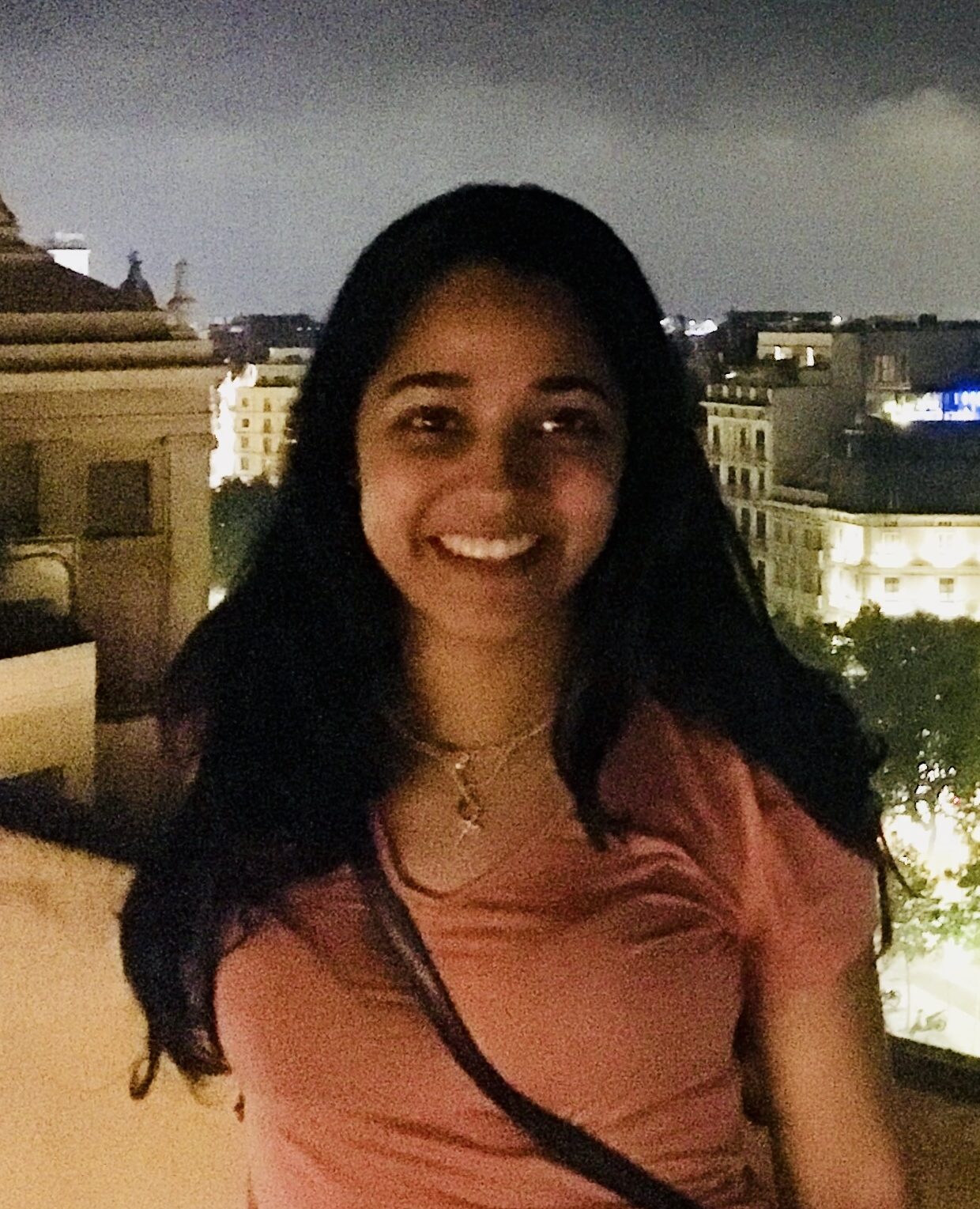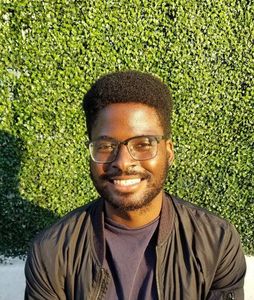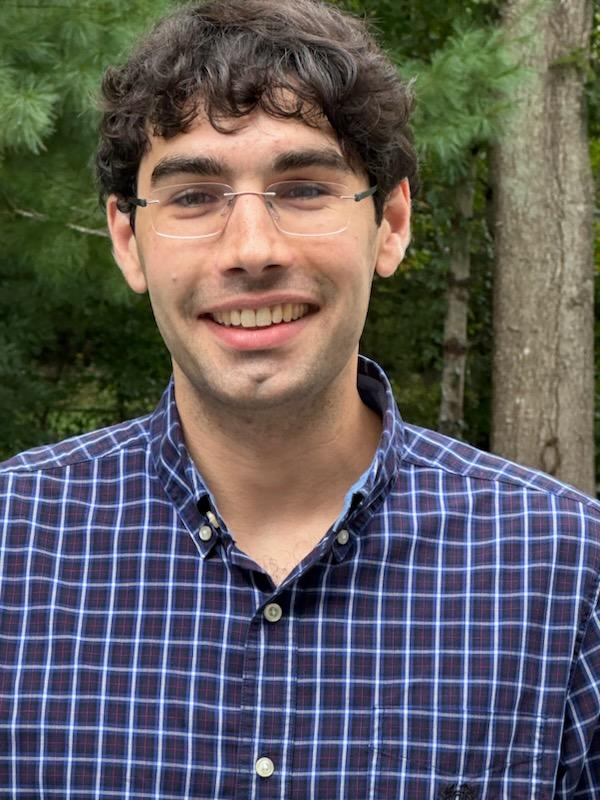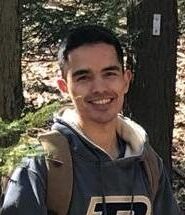Students

Tong Tong
Dr. Lindsay Farrer’s Lab, Biomedical Genetics
Ph.D. in Bioinformatics, Boston University, Boston, MA (2020 – present)
M.S. in Bioinformatics, Boston University, Boston, MA (2020)
Research Interests: Identification of biomarkers for Alzheimer’s disease through statistical, genetic, and genomic approaches.
Nicholas O’Neill
Dr. Lindsay Farrer’s Lab, Biomedical Genetics
Ph.D. Candidate, Boston University
B.S. Biochemistry, Boston College (2013)
Research Interests: Single-Cell sequencing analysis, Alzheimer’s disease progression, gene regulation and epigenetics
Selected Publications:
• Jadhav U, Saxena M, O’Neill NK, et al. “Dynamic Reorganization of Chromatin Accessibility Signatures during Dedifferentiation of Secretory Precursors into Lgr5+ Intestinal Stem Cells.” Cell Stem Cell 2017;21(1):65‐77
• Saxena M, Roman AKS, O’Neill NK, Sulahian R, Jadhav U, Shivdasani RA. “Transcription factor-dependent ‘anti-repressive’ mammalian enhancers exclude H3K27me3 from extended genomic domains.” Genes Dev. 2017; 31(23-24):2391‐2404.
• Jadhav U, Nalapareddy K, Saxena M, O’Neill NK, et al. “Acquired Tissue-Specific Promoter Bivalency Is a Basis for PRC2 Necessity in Adult Cells.” Cell 2016; 165:1389-1400
• Cejas P, Li L, O’Neill NK, Duarte M, et al. “Chromatin immunoprecipitation from fixed clinical tissues reveals tumor-specific enhancer profiles.” Nat Med. 2016; 22:685-691
Zhuorui Sun
Dr. Xiaoling Zhang’s lab, Data Analyst
M.S. in Bioinformatics, Boston University, Boston, MA (2022)
M.S. in Biomedical Engineering, Tufts University, Medford, MA (2020)B.S. in Biomedical Engineering, Tsinghua University, Beijing, China (2017)
Research Interests: Focusing on CircRNAs and circular-transcriptome-wide analysis, using bioinformatics tools and machine learning to further understand Alzheimer’s disease on gene level
Selected Publications:
• Ma F*, Yang L*, Sun Z, Chen J, Rui X, Glass Z, Xu Q. Neurotransmitter-derived lipidoids (NT-lipidoids) for enhanced brain delivery through intravenous injection. Science advances. 2020 Jul 1;6(30):eabb4429.
 Marlene Tejeda
Marlene Tejeda
Dr. Lindsay Farrer’s Lab, Biomedical GeneticsPh.D. in Bioinformatics, Boston University, Boston, MA (2019 – present)B.S. in Biology, University of Massachusetts Boston, Boston, MA (2015)
Research Interests: Using genetics, bioinformatics, and machine learning to understand the association between microbes and Alzheimer’s disease.
 Olowatosin Olayinka
Olowatosin Olayinka
Work with Dr. Lindsay Farrer and Dr. Xiaoling Zhang
Ph.D. Bioinformatics (2020-present)
B.S. Biology UNC Chapel Hill (2020)
Research Interests: Use of statistical methods to uncover transcriptional mediators of Alzheimer’s disease pathology.

Zainab Khurshid
Works with Dr. Lindsay Farrer and Dr. Xiaoling Zhang
Ph.D. Bioinformatics, Boston University (2020 – present)
M.S. Bioinformatics, Boston University (2019)
B.S. Electrical Engineering, LUMS University, Lahore, Pakistan (2017)
Research Interests: Alzheimer’s disease and genomics
Selected Publications:
• Chevalier A, Yang S, Khurshid Z, Sahelijo N, Tong T, Huggins JH, Yajima M, Campbell JD. The Mutational Signature Comprehensive Analysis Toolkit (musicatk) for the Discovery, Prediction, and Exploration of Mutational Signatures. Cancer Res. 2021 Dec 1;81(23):5813-5817. doi: 10.1158/0008-5472.CAN-21-0899. Epub 2021 Oct 8. PMID: 34625425; PMCID: PMC8639789.
Works in Dr. Gyungah Jun’s Lab, Biomedical Genetics
Ph.D. Bioinformatics, Boston University (present)
M.S. Bioinformatics, Boston University
Research Interests: Alzheimer’s disease (AD), genetics, epigenetics, multi-omics, chronic traumatic encephalopathy (CTE)
Selected Publications:
• Atherton, K., Han, X., Chung, J., Cherry, J.D., Baucom, Z., Saltiel, N., Nair, E., Abdolmohammadi, B., Uretsky, M., Khan, M.M. and Shea, C., 2022. Association of APOE genotypes and chronic traumatic encephalopathy. JAMA neurology, 79(8), pp.787-796.
• Chung, J., Vig, V., Sun, X., Han, X., O’Connor, G.T., Chen, X., DeAngelis, M.M., Farrer, L.A. and Subramanian, M.L., 2022. Genome-Wide Pleiotropy Study Identifies Association of PDGFB with Age-Related Macular Degeneration and COVID-19 Infection Outcomes. Journal of Clinical Medicine, 12(1), p.109.
• Marini, S., Chung, J., Han, X., Sun, X., Parodi, L., Farrer, L.A., Rosand, J., Romero, J.R. and Anderson, C.D., 2023. Pleiotropy analysis between lobar intracerebral hemorrhage and CSF β-amyloid highlights new and established associations. International Journal of Stroke, p.17474930231155816.
• Nicks, R., Clement, N.F., Alvarez, V.E., Tripodis, Y., Baucom, Z.H., Huber, B.R., Mez, J., Alosco, M.L., Aytan, N., Cherry, J.D. and Cormier, K.A., 2023. Repetitive head impacts and chronic traumatic encephalopathy are associated with TDP-43 inclusions and hippocampal sclerosis. Acta Neuropathologica, 145(4), pp.395-408.

Junming Hu
Works with Dr. Lindsay Farrer and Dr. Xiaoling Zhang
Ph.D. Bioinformatics, Boston University (present)
M.S. Bioinformatics, Boston University (2018)
Research Interests: Alzheimer’s disease, machine learning, genetics
 Francis Grenn
Francis Grenn
Works with Dr. Lindsay Farrer and Dr. Xiaoling Zhang
PhD Bioinformatics, Boston University (2022 – present)
B.S. Computer Science, Providence College, Providence, RI (2016)
B.A. Mathematics, Providence College, Providence, RI (2016)
Research Interests: Gene regulation and epigenetics, neurodegenerative disease genomics
 Nathan Sahelijo
Nathan Sahelijo
Works in Dr. Gyungah Jun’s Lab, Biomedical Genetics
PhD Candidate, Boston University
B.S. Physics and Mathematics, Purdue University (2016)
Research Interests: Having started in the physical sciences, his current research focuses on drug repositioning through applied machine learning in the field of neuroscience and neuropathology. As part of the AI4AD consortium, Mr. Sahelijo’s project looks to integrate genetics and systems biology to identify potential therapeutic targets for Alzheimer’s Disease using multi-modal graph neural networks. Prior to joining the Dr. Jun lab, Mr. Sahelijo helped to develop the Mutational Signature Comprehensive Analysis Toolkit (musicatk) for mutational signature discovery and prediction in pan-cancer datasets.
Selected Publications:
• Chung, J., et al. Alzheimer’s disease heterogeneity explained by polygenic risk scores derived from brain transcriptomic profiles. Alzheimers Dement (2023).
• Sherva, R., et al. African ancestry GWAS of dementia in a large military cohort identifies significant risk loci. Mol Psychiatry 28, 1293-1302 (2023).

